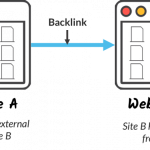If you want to build a profitable blog, you need to have positioning that’s unique and stands out from the crowd. Most people aren’t willing to spend a lot on blog design and SEO because it’s expensive, but it’s a huge differentiator. Blogging for profit requires dedication, patience, and resilience. It’s not easy, but at the same time, it doesn’t require insider secrets or rare skill. The sad truth is that most new bloggers give up way too early and never see their blogs earn a significant profit; some even quit right before their big break.
How to Make profitable blog?
Blogging isn’t easy. In fact, it takes a lot of work. And hard truth: it takes some money. To do things right, you shouldn’t just start a blog on a site like Blogger or Wix. You need to host your own site. It sounds scary, doesn’t it?
Well, here’s another hard truth: if you want to blog, you’re going to have to get over the fear of the unknown. Because, there’s a lot that you don’t know. And unless you have boatloads of cash to sink into virtual assistants and freelancers, you have a steep learning curve ahead of you.
Also Read:
10 Easy Hacks to Improve Your Blog Visibility and Traffic
1) Pick your blog’s name and niche
First, it’s time to pick a name and niche for your new blog.
The name of your blog is what readers will see first (like yourblog.com), so it should ideally represent either the general topics you’ll be writing about it could be your own name, that of your business, a clever combination of words, or otherwise.
Your blog’s niche is the general topic area that you’ll be focusing your content around. Examples include topics like travel, food, fashion, lifestyle, technology, and otherwise. Incorporating a word or two that clearly signals what your content is about, within the name of your blog (like fashionbyjane.com or watchryanhike.com) will be very helpful for your future blog readers.
2) Get Your Profitable Blog Set Up
Ultimately, it’s up to you where you decide to host your blog and what theme you use. But if you want my advice, here it is:
Use Siteground or NameHero to host your site:
Your blog needs somewhere to live and that somewhere is a server. Do you own one? So use a hosting company. All of them pair with WordPress.org, which is the content management system (how you access the back end of your site) that most bloggers recommend. You can find plenty of YouTube tutorials that will guide you through setting your site up through these. Make sure you get an SSL certificate so that your site is secure.
Choose your theme:
When you’re setting up your site on WordPress.org, you’ll need a theme. This is how you make your site look the way you want it to colors, fonts, sidebars, menus, etc. But it’s more than that. A lot of themes can really slow down your site, which is bad for user experience. You can find plenty of YouTube tutorials on setting this up, as well.
Set up your legal pages for profitable blog:
This is where things get a little dicey. Whether you want to or not, your site will store cookies on your users’ computer. It’s your legal duty to let them know about that. You’re also required to disclose payment (or possible payment) for your work. So you need a Privacy Policy, a Disclaimer, and a Terms of Service. Learn more here. Plus, you need to be CCPA compliant.
Create your About page:
Most people think your About page is a place to explain to curious readers who you are. It is, but it’s also the place where readers can find out what your site’s purpose is (what your site has to offer for them). Add both to your page. This is also a good place to collect email subscribers.
3) Write posts For Profitable Blog
Before you launch your blog, you need some content! It’s a good idea to keep all your blog posts at least semi-related to each other. However, there are a lot of benefits to only blogging about one topic, especially when it comes to things like SEO and list building.
To figure out what to start writing about, think about two things: your ideal reader and the topic you’re planning on blogging about.
Let’s say your niche/topic is sustainable living, and your ideal readers are moms looking for simple solutions to make their home more eco-friendly.
What are the first moves they need to start down the path of sustainable living? Come up with three simple steps they can take, and write about them in a helpful, informative way.
And you have your first blog post. Plus, you can expand on each of your points to create a separate blog post that goes more in-depth into one specific topic.
4) Launch your blog
Once you have 5–10 blog posts written, share your blog with the world! You’ll find that it takes a while to gain traction with a new site, so don’t worry about not having a ton of content up yet. Your new readers can grow with you!
Just make sure you have:
- Your page set up
- social media accounts ready to go + listed on your site
- any design kinks worked out
- social share buttons on your blog posts
- email list sign-up forms on each of your pages
5) Create Your Own Product (Or Service)
What starts as a simple blog can quickly grow into a full-time business venture when you offer your own relevant products or services to excited readers.
This is how many of the most successful bloggers earn the bulk of their income through sales of online courses, books, training programs, coaching packages, software tools or otherwise. Still, it’s crucial to develop a proper understanding of what your audience is looking to solve, in order to make money this way.
There are countless options at your disposal today, so it’s important to do your research and determine which products or services you can provide, that’ll also appeal to your current readership.
Guest blogging on other relevant blogs and sites like Medium, Quora & Linkedin
One of the best things about starting a blog is that you’re joining a community of other bloggers that love to help each other out. Guest blogging on other relevant sites is the #1 best way to connect with an already established audience.
Forums and message boards for bloggers
Often, just throwing your ideas out into the social media void isn’t very effective.
Instead, being a part of targeted forums and online communities can give you a way better return on your time if you find the right ones. Browse through relevant groups on Facebook to see if there are any vibrant communities that’d be a good starting point.
Remember, forums and message boards aren’t just places to dump links to your blog posts. You need to provide value before you ask for anything in return. So, start by building relationships and engaging with people there.
6) Start earning money From Your Profitable Blog
Once you’ve got some content up on your blog, and you’re starting to get some page views, it’s time to consider monetizing your blog. Here are the main ways to do this:
- Affiliate marketing
- Display ads
- Sponsored posts
- Selling your own products
Monetize Blog With Affiliate Marketing
With the right foundation for attracting a loyal readership in place, you’re ready to dive into specific monetization channels.
One of the most popular methods of doing this today, is affiliate marketing. By partnering with a brand’s affiliate program to surface their relevant product (or service) to your readers, you can earn a commission when someone from your audience clicks through and buys that product or service.
The right affiliate programs can prove extremely valuable, as evidenced by the fact that they’re the main driver of my blogging income, but remember that you’re required to be transparent about the use of affiliate links, as not to deceive or confuse your audience.
It Takes Time to Build a Profitable Blog
When it comes to building a profitable blog, Pat Flynn said it best: we don’t trade time for money. The best part about generating a profitable blog is that the work you do now will benefit you later.





























